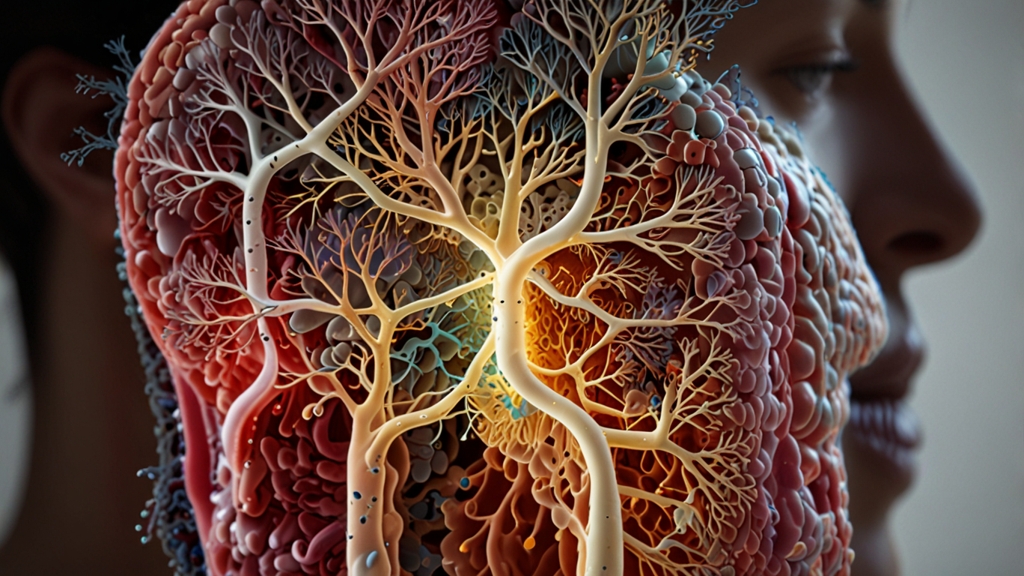The Human Microbiome: Your Hidden Organ That Holds the Key to Health
The human body is a complex ecosystem teeming with trillions of microorganisms that coexist symbiotically with our own cells. Collectively known as the microbiome, these microscopic inhabitants reside primarily in the gut, but also inhabit the skin, mouth, and other parts of the body. Over the past few decades, scientific inquiry into the microbiome has exploded, revealing its crucial role in overall health and its potential to revolutionize modern medicine.
What is the Human Microbiome?
The human microbiome consists of bacteria, viruses, fungi, and other microorganisms. These organisms outnumber human cells by about ten to one. The gut microbiome, in particular, has garnered significant attention because it houses the largest number and diversity of microorganisms. The gut microbiome weighs as much as several pounds and is increasingly being considered a "hidden organ" due to its extensive influence on bodily functions.
The gut microbiome weighs as much as several pounds and is increasingly being considered a "hidden organ."
The Role of the Microbiome in Digestion
One of the most well-understood functions of the gut microbiome is its role in digestion. These microorganisms help break down complex carbohydrates, fibers, and proteins that human enzymes find difficult to digest. They produce short-chain fatty acids, which not only nourish the cells lining the gut but also serve as a source of energy. Without a healthy gut microbiome, our bodies would struggle to extract essential nutrients from food.
Immune System Regulation
Another critical function of the microbiome is its impact on the immune system. The gut houses a significant proportion of the body's immune cells. These cells are continually interacting with gut bacteria, shaping immune responses. A balanced microbiome can help the immune system efficiently differentiate between harmful pathogens and benign entities, thus playing a pivotal role in disease prevention.
A balanced microbiome can help the immune system efficiently differentiate between harmful pathogens and benign entities.
Mental Health and the Gut-Brain Axis
The concept of the "gut-brain axis" symbolizes the deep biochemical signaling that occurs between the gastrointestinal tract and the brain. Recent studies have suggested that an imbalanced microbiome could contribute to mental health issues such as anxiety, depression, and even neurodevelopmental disorders like autism. By influencing the production of neurotransmitters and modulating inflammation, the gut microbiome could be a pivotal player in mental health.
Metabolism and Weight Management
Research indicates that the gut microbiome significantly influences metabolism and body weight. Specific bacterial strains are associated with nutrient absorption, fat storage, and energy metabolism. A disrupted microbiome—known as dysbiosis—may contribute to metabolic conditions such as obesity and type 2 diabetes. Understanding these links offers new avenues for treatments aimed at weight management and metabolic health.
Maintaining a Healthy Microbiome
Maintaining a diverse and balanced microbiome is crucial for health. Several lifestyle choices can support a healthy microbiome:
- Diet: Consuming a diet rich in fiber, fruits, vegetables, and fermented foods can nourish beneficial bacteria.
- Probiotics and Prebiotics: Probiotics contain live beneficial bacteria, while prebiotics are non-digestible food components that promote the growth of beneficial bacteria.
- Limiting Antibiotics: While antibiotics are sometimes necessary, their overuse can disrupt the microbiome. It's crucial to use them judiciously and under medical supervision.
- Physical Activity: Regular exercise has been linked to a more diverse gut microbiome.
- Stress Management: Chronic stress can negatively impact the microbiome, so practices like mindfulness, meditation, and adequate sleep can help maintain microbial balance.
The Future of Microbiome Research
The burgeoning field of microbiome research holds promise for groundbreaking medical advancements. Personalized medicine, where treatments are tailored based on individual microbiome profiles, could become a reality. Scientists are also exploring microbiome transplants and engineered probiotics as potential therapies for various health conditions.
The burgeoning field of microbiome research holds promise for groundbreaking medical advancements.
In summary, the human microbiome is a fascinating, complex system that significantly impacts our health. Its roles in digestion, immune function, mental health, and metabolism highlight its importance as a "hidden organ". As research continues to unveil the mysteries of our microbial inhabitants, the potential for transforming health and medicine becomes increasingly apparent.










